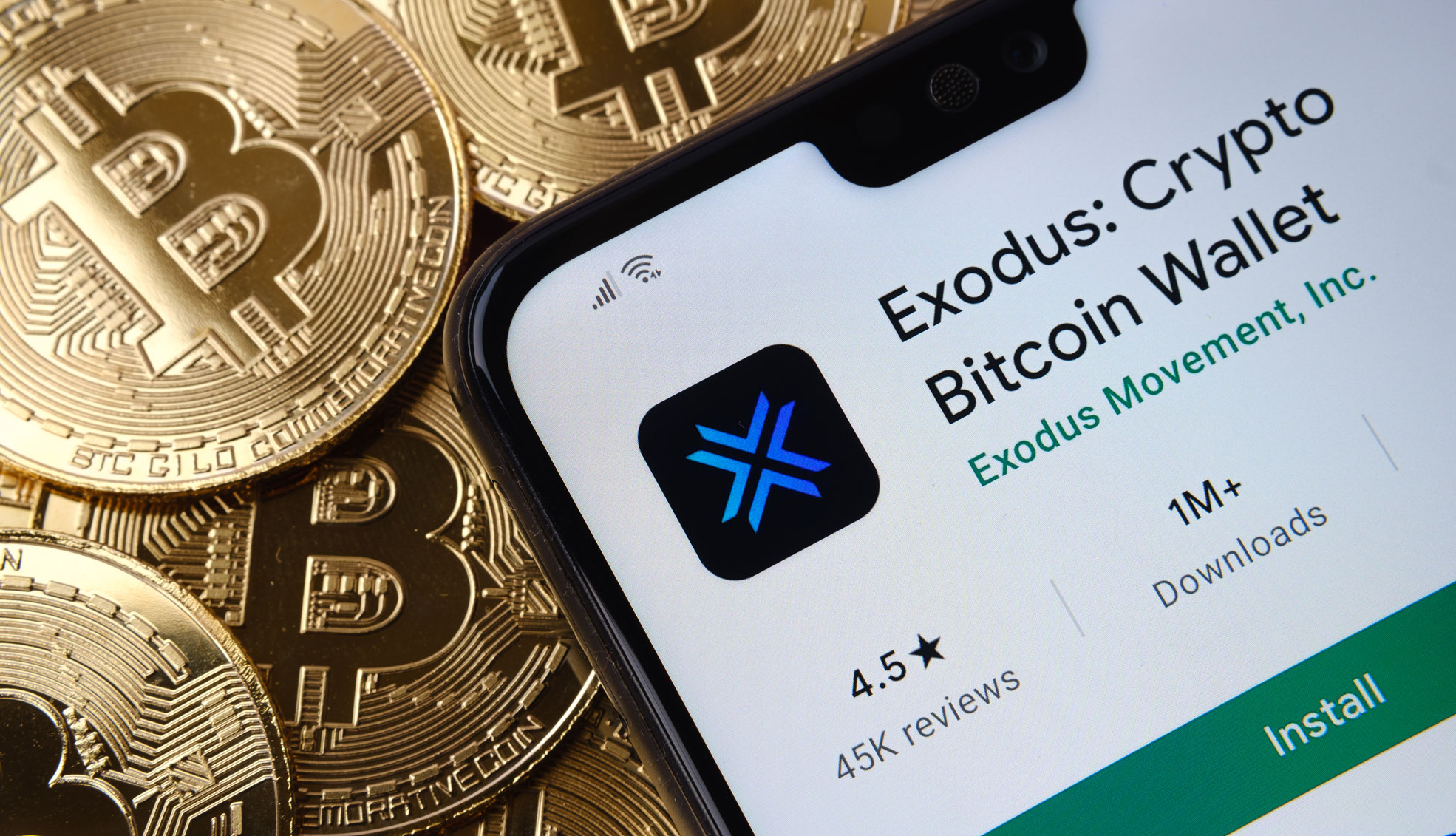by Jake Wengroff
Exodus is a digital wallet that supports over 100 cryptocurrencies. Long known as a wallet targeting beginner crypto investors, it has an easy-to-use interface that welcomes newbies. Designed to be intuitive, Exodus offers both a crypto exchange and portfolio management services, in which users can store, manage and trade cryptocurrencies from a single interface.
Additionally, it has good customer support, because it can afford it: The company makes money by charging fees on trades made with the built-in exchange. This means that Exodus can offer proper email support, which is helpful for many newbie crypto investors.
However, these services come at a cost. The developers of Exodus have made trade-offs with security and other privacy features for the sake of simple usability. Let’s have a look.
No Registration Needed, No Two-Factor Authentication
Exodus is a cross-platform app available for Windows, macOS and Linux. Since it doesn’t require registration, according to TechRadar, you can simply download the app and install it to get started. In fact, users can exchange one cryptocurrency for another without even needing to register.
Further, Exodus is a light wallet that uses Simplified Payment Verification, which means it doesn’t download complete blockchains. Instead, Exodus uses a series of servers to track wallet balances, which could mean added speed in retrieving information.
What’s worse from a security standpoint is that Exodus doesn’t support two-factor authentication, relying only on a user supplying a password. An emerging authentication protocol for several other crypto wallets and exchanges, known as multisignature address, requests permissions from multiple devices before initiating any transfers. Unfortunately, Exodus does not incorporate this protocol either.
Stealing passwords to gain unlawful access to an account is the main method of data breaches — and is one of the easiest ways for crypto assets to be stolen. By relying solely on passwords to gain access to accounts, Exodus creates vulnerabilities at scale across its platform.
Compromising Security for Usability
By default, an empty Exodus wallet isn’t secured with a password. However, the process of securing it begins automatically once a user has made a deposit into the wallet.
Users are asked to password-protect their wallet as soon as they receive their first deposit. Of course, as a good practice, it’s a good idea to choose a difficult, unique password for a crypto wallet. Exodus suggests using a password manager to store the password, but for additional protection, users can borrow a practice from “cold” storage wallets and jot the password down on a piece of paper so it is not stored online via the browser or a password manager.
Exodus will also display a 12-word phrase that can help a user recover a password. For further security, users can jot down not only the password but also the 12-word phrase on the piece of paper and store it in a secure location.
Another potential security risk is how the wallet was developed. Although Exodus is built on many open-source components, the wallet itself isn’t open source. According to TechRadar, “You’ll have to rely on Exodus’ developers to make sure the app is secure and you don’t get the option to scan the code” as you can with other cryptocurrency wallets and exchanges.
Keeping Crypto Secure
While it might be a challenge for crypto investors of all experience levels to choose and retain the right wallet, additional tools are needed to provide an extra layer of security should there be concerns about security.
TransitNet is creating the industry’s first third-party title registry, to add a layer of protection for cryptocurrency assets by providing proof of ownership. With a title in place, investors can prove ownership of their crypto assets at any time, bringing peace of mind when utilizing various wallets, exchanges, and services in the crypto ecosystem.
Join the forefront of the new crypto infrastructure. Request an exclusive registration for TransitNet’s title registry when it launches today.
Jake Wengroff writes about technology and financial services. A former technology reporter for CBS Radio, Jake covers such topics as security, mobility, e-commerce and IoT.
Sources
TechRadar – Exodus Cryptocurrency Wallet Review
